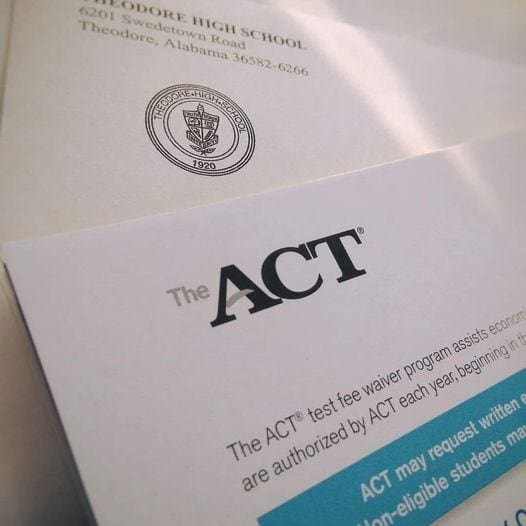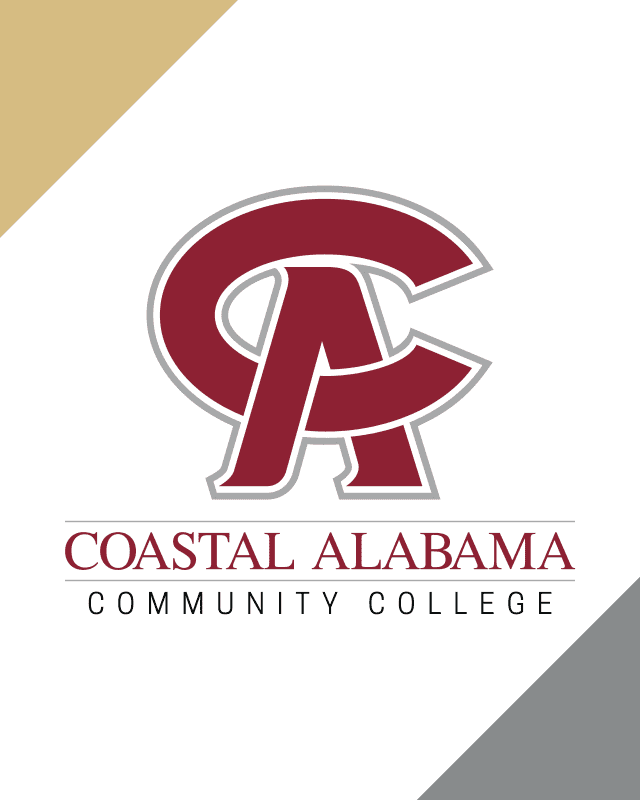Homeschooling Through the Years
Birth – 5th grade
Welcome to Homeschooling! What an exciting place to be!
The Elementary years have always been my favorite! It’s full of excitement & discovery! There are roughly 3 stages in this age group: the early years, preschool & kindergarten years, and the elementary years. What you want is a gentle progression. In the early years, your main focus is encouraging joy in everyday learning. You are developing a routine & learning your child. This is a great time to read all the wonderful homeschool books & build your own personal tribe. Find a mentor. Find friends. Notice, I did not say buy curriculum. Wait. See what’s out there. Instead, establish a morning basket to start your day. Lots of great books, lots of talking about the world around you, lots of cuddles. Add in lots of creative play which includes blocks, playdoh, moon sand, arts & crafts and nature study. As they become bored with an activity switch it out. Little minds love to learn!
As time goes on and your child grows into a preschooler, you can begin to introduce more learning gently. Number sense, letters & sounds. Around kindergarten, you can introduce curriculum for phonics & math. Continue creative play. Upgrade it as they grow. It’s about time to add in games. Once your child has completed phonics & is reading well. Then you can begin to add in science & history on a regular bases. So much fun! You can do it!
By: Deven Vasko; homeschool mom for 15 yrs; Mobile County, AL
The most popular school of thought on preschool is to keep it primarily play-based. Songs, arts and crafts, outside play, pretend play, the library, and field trips, with very little sit-down work. Many families purchase no curriculum for preschool, and use dollar store books and free printable websites to practice dexterity and “do school” a little throughout the day.
6th grade – 8th grade
Did you ever think you’d make it this far!?? Homeschooling your middle schooler! Whew. Seriously, the hardest parts are behind you: Your kids can read and write; they know their basic math skills; they can – hopefully – work self-directed for at least a short time; and you are all in a rhythm. You’ve answered “But what about socialization?” the mandatory 2,864 times and you’ve smiled and nodded at “Oh! I could never homeschool my kiddo!”. I promise that homeschooling actually gets easier from here on out, although it may start looking different. Your elementary-aged student may have enjoyed several field trips a week, play dates, and park days. Your middle schooler, however, is going to need to spend more time “hitting the books”. The time has come to be sure he will be ready to check off those boxes for high school needed for college admission. It’s also time to start developing those skills he will need for college: note-taking, time management, and self-discipline.
There’s no need to make a 180* change in every subject; just pick one or two subjects at first. Math is an excellent choice as it lends itself to independent effort so well.
(1) If your child is not already doing so, have him work alone – without you hovering nearby. No offense meant because I was a Hover-mom until I saw the damage it was doing my daughter. We won’t always be “right there” to pick them up; they have to learn how to “struggle”, how to find the answer on their own, and, yes, how to make and correct mistakes. They need the confidence that comes from working alone – not the immediate validation of you shaking your head “correct” before their pencil leaves the paper.
(2) Use a weekly planner to assign your student’s lessons. Even better, schedule the assignments with your student so that he sees the process of dividing the workload among the school days. I like the weekly planner free to print at The Homeschool Mom. Use one sheet for each subject. So MATH, Monday, week of 4/1 might look something like this:
READ pages 3-5 in your textbook
COMPLETE questions 1-15, Section A, page 4 in your textbook;
FOLLOW THE DIRECTIONS COMPLETE questions 5-15, Section B, page 5 in your textbook;
FOLLOW THE DIRECTIONS
When everything is complete, he is “done” with math for the day. Who doesn’t love checking off items on a “to-do” list?! It’s a great sense of accomplishment!
(3) Check the work and return it the next school day with items to be corrected. You can also make a note “SEE MOM” when it’s time to broach a new topic. They’re still young – so stickers and stamps or a drawn heart from mom still go a long way!
(4) If you aren’t using a traditional textbook, now is the time to start. Again, maybe for just one or two subjects at first; math is, again, a great choice. Your student needs to get familiar with traditional textbook formats: table of contents, sections, section review questions, skills tests, bolded vocabulary words, indexes, glossaries, etc. This is not to say that you can’t – and shouldn’t – still incorporate other resources into your study, like videos, other books, articles, field trips, etc.
(5) Now is also the time to work on your student’s note-taking skills. This skill-building activity is probably easiest with History and Science topics. To begin, you might want to create fill-in-the-blank note-taking activities to accompany videos or reading lessons. It takes time, but you can watch the video or read the book first and type out questions that follow along leaving blanks for your student to fill in. Another way to build this skill is to have your student outline while you are reading together. This gives you the opportunity to say “Hey. That word is in bold so it must be important. What does that word mean? Why is it important to what we’re reading? Do you think you might see that word on a quiz about this subject?”.
(6) It’s time for your students to take tests and quizzes too, if they are not already doing so. You can create a simple quiz for any subject. Your student needs to get used to working through test anxiety and what better and safer way than in your homeschool! Online quizzes are fine but don’t underestimate good, old-fashioned paper and pencil bubble tests. I love helpteaching.com for test creation.
(7) Along with quizzes and tests, it’s time for objective grading. I didn’t give my daughter a grade on anything in her elementary years. My philosophy was: she either mastered it and we moved on OR she needed more time and we kept going over it. There was no “C+” and we moved to the next topic. By middle school, however, your student needs to start seeing grades and you need to start getting used to keeping grades for his high school transcript. Now, there is still only “MASTERY” accepted in my homeschool, but, if she makes an 84 on the quiz, then that grade will stand on the official record even though we will go over it again until she is at 100%.
(8) Middle-school age, especially at the 7th and 8th grade levels, is a good time to get involved in group classes. Your student needs to learn to take direction from another adult; he needs to hear how others present information; he needs to experience a classroom setting with other students. Hopefully, you have some awesome co-ops around you and can participate in a class or two.
(9) For your student’s sixth and seventh-grade years, it is important to ensure your student is ready for high school-level work. Use these middle school years to prepare your student for high school-level classes. Start by checking the graduation requirements for your cover school. If your cover school does not have any requirements, you can use your state’s standards. For Alabama, those standards can be found here. Another helpful resource for helping in the high school years is found at Everest Academy in their High school Handbook.
(10) By eighth grade, your student *can* begin to earn high school credit for high school level work. You can find several articles for more information: HERE and HERE I realize all this is sounding a lot like “school” and, as homeschoolers, that’s probably what you’ve been trying to avoid. PLEASE keep enjoying the blessings that homeschooling affords us, while beginning to incorporate some of the ideas mentioned above. Colleges haven’t changed their ways of doing things and we want our students to be prepared for that setting.
By: Kristin Smith; homeschool mom for over 15 yrs; Madison County, AL
9th grade – 12th grade
Homeschooling high school always seems to scare people the most, when it can really be the best time of your entire homeschool journey. All the basics are out of the way, and you are building on concepts already learned. This is also a time to get to dig into your student’s passions and to start working towards their future goals.
Requirements for homeschooling high school vary by state. In Alabama, you have the freedom to shape exactly the track you and your student want. If your student is heading down a vocational road, you can start looking into vocational “early enrollment” programs at area colleges or internships at local businesses. If your child is college-bound, they can start preparing and even earning credits!
For planning out the year you cant beat the Alabama Homeschooling High School Handbook! Great info and diploma requirement checklist. The state of Alabama DOES NOT have requirements for us, but this is a great outline to help you make your high school plans. https://docs.google.com/document/d/1BlAk7Pawomzl_Q4K15kre5PACiXnerMm27pI4rU7iFk/edit
If you fall within certain income requirements you are eligible for a FREE ACT. You will need to take a copy of your most recent taxes to a local High School counselor so they can verify (they don’t need to make a copy, just make sure you are telling the truth) and they will give you the code to put in.
https://www.act.org/content/dam/act/unsecured/documents/FeeWaiver.pdf
FREE act prep! Start preparing for ACT by 9th grade if you are looking to early/dual enroll. The Alabama Public Library has a fantastic FREE resource for this. Learning Express: College Admissions Test Preparation Prepare for important exams like the ACT®, SAT®, AP® Tests, and more. They have 4 complete, timed, tests to practice on that pop up a score at the end. https://www.learningexpresshub.com/productengine/LELIndex.html#/learningexpresslibrary/libraryhome
Electives come into play in high school as well. You can get creative with these by taking things your child has always wanted to learn and turning them into credits! entrepreneurship, wood shop, environmental conservation, auto mechanics, cooking, sewing, photography, and so much MORE!
So how do you teach the classes once they have surpassed what you remember how to do, like those Algebra and Chemistry courses? There are many curriculums that teach these for you, as well as online courses with LIVE teachers, and co-op classes. If you are still nervous about your abilities to teach these classes your child can start early enrollment in college courses as early as 10th grade.These methods take those classes off your teacher-plate, and give your child college credits at the same time!
Scholarship Sites for after graduation Many of these scholarships are ones you need to be working towards before your senior year. Counselor tip: Look at the ones you want to try for and mark the deadlines on your calendar so you don’t forget. You will have a lot of things going on senior year and this will help you tremendously. https://www.scholarships.com/ https://www.fastweb.com/
Another thing to consider is transcripts, which are often seen as the ‘boogie man’ of the high school years. Most church schools will provide these for your students. If yours does not, a quick Pinterest search will lead you to “easy to pull together”, no stress, transcripts. South Alabama Homeschooling has a Pinterest Board with numerous samples. [ SAH board ] To ensure yourself the easiest time in pulling together a quality transcript, be sure to keep track of the subjects you are teaching every semester as you go. It is more difficult to remember what you taught 2 or 3 years back than you might think.
Finally GRADUATION! A legally valid church school or private school diploma is recognized by colleges, universities, employers, the military, and more. When it comes to ceremonies there are a couple of options. If you are looking for a bigger ceremony with other graduates, several area church schools and support groups offer ceremonies. Others do simple, in-home, ceremonies for their grads with just close family and friends.
There are a multitude of stories about homeschool graduate successes in the world around us! {See several stories about them!} Don’t forget to check out the national group ” It’s Not That Hard to Homeschool High School,” and Blue Collar Homeschool, as they are great sources of support and information as you head into high school.
Early enrollment tips, tricks, and what that cost will look like!
Updated November 2024
As I prepared to send my oldest two off to college as high school graduates, I couldn’t help but reflect on everything I wish I had known sooner! The money we could have saved and how much further along they could be in their education makes me cringe a little. This is one area where I truly wish we had access to a high school counselor!
To help others avoid the same pitfalls, I’m sharing some of the tips and tricks I’ve learned over the past few years. I’m also including information on the requirements and costs of various public universities, private universities, and community colleges. This should give you a clearer picture of what you’ll need to have in place and what expenses you might be preparing for.

The HSLDA High School & Beyond resource hub offers comprehensive support for homeschooling families navigating high school and preparing for life after graduation. It includes guidance on creating a personalized high school plan, selecting curriculum, and exploring electives and extracurricular activities. Families can find help with standardized test preparation, including accommodations, and access tools for creating transcripts, grading, and recordkeeping.
Post-graduation resources cover college applications, career exploration, and alternative pathways like vocational training or military service. Additionally, HSLDA provides tailored support for students with special needs, ensuring their high school experience is both accessible and successful. This wealth of resources empowers parents to provide a well-rounded and individualized education, equipping teens for a bright future.
An interview we did with one of the HSLDA High school counselors!
When to start ACT prep:
Start preparing for ACT by 9th grade if you are looking to early/dual enroll. The Alabama Public Library has a fantastic FREE resource for this. You do not have to have an AL library card to access this. Learning Express: College Admissions Test Preparation
Prepare for important exams like the ACT®, SAT®, AP® Tests, and more. They have 4 complete, timed, tests to practice on that pop up a score at the end.

FREE ACT under income:
In some states, students can receive free ACT codes alongside their public school peers. Unfortunately, Alabama is not yet one of those states. However, one way to obtain a FREE ACT code is to qualify under certain income brackets.
To access this code, you’ll need to visit a local high school counselor and bring your previous year’s income tax return. The counselor doesn’t need to keep or copy your documents—they simply verify your eligibility. Once verified, they will provide you with a code to use at checkout when registering for the ACT.
BONUS: This code also includes 6 months of access to a $180 ACT Prep program at no extra cost! Just add the prep program to your cart at checkout when registering.
Dual Enrollment vs. Early Enrollment: What Homeschoolers Need to Know
When calling area colleges, it’s important to understand the distinction between dual enrollment and early enrollment, as these terms are often misunderstood and can lead to bad information.
- Dual Enrollment: This typically refers to a public school program where college instructors teach courses at the high school, and students receive both high school and college credit. These programs are often tied to the public school system and may not apply to homeschoolers.
- Early Enrollment: This is what homeschool families should ask about. Early enrollment allows students to take college courses for credit while still in high school, independently of public school programs.
When speaking to college admissions, ensure you’re talking to someone who has successfully processed a homeschool student through the admissions process. This can save you from unnecessary complications and confusion.
How Early Enrollment Works on Your Transcript
Early enrollment is when your high schooler takes college credit courses while still in high school. Colleges won’t automatically count these courses as high school credit—that’s up to you as the homeschool parent.
You can include these courses on your high school transcript, and when you do, they are considered dual enrollment courses. This means the student earns both high school and college credit for the same course, which can strengthen their transcript and demonstrate advanced learning to future colleges or employers.
Be sure to clearly label these courses as dual enrollment on the transcript and include the name of the college where the credits were earned.
What’s in a Name?
These programs go by many different names, and only a few are referred to as “dual enrollment.” You may also hear them called early enrollment, accelerated programs, or even Freshman Academy at some colleges. When contacting a college not listed here, be sure to clearly explain what you’re looking for: college courses that your high school-aged student can take to earn college credits.
Important Notes:
- The listed prices for these programs do not include the cost of books.
- Financial aid and scholarships are not available for early enrollment programs because they already offer a significant discount on tuition.
Clarifying the terms and understanding these details will help ensure a smoother enrollment process for your student.
College Requirements
Here are some colleges and what they require (I will add to the list as I hear back from more colleges)
Start South
Starting Grade
10th
GPA
3.0
Cost
$166
per credit hour, $498 per 3-credit course, and Start South students pay no fees.
Students are able to enroll in 100 and 200-level courses for which they meet the prerequisites.
- Alice Abernathy
- startsouth@southalabama.edu
- 251-460-6101
Technical Dual Enrollment
Starting Grade
10th
GPA
2.5
Cost
FREE
Must have cover school administer contact. Can sign an agreement with a parent if sent private school enrollment. Possibly finish with a certificate. May have to do a few more courses for an additional cost. You can only change trade once.
- Jeremy Daughtry, Ed. D.
- jdaughtry@bishop.edu
- 251-405-7049
Academic Dual Enrollment
Starting Grade
10th
GPA
2.5
ACT English/Math/Reading 18 or Accuplacer Test
Cost
$179
per semester hour.
Must have cover school administer contact. Can sign an agreement with a parent if sent private school enrollment. Possibly finish with a certificate. May have to do a few more courses for an additional cost. You can only change trade once.
- Jeremy Daughtry, Ed. D.
- earlycollege@bishop.edu
- 251-405-7049
ACCELERATE Dual Enrollment
Starting Grade
10th
GPA
3.0
ACT 20/1030 SAT (no writing)
Cost
$149
per credit hour with $30 one-time application fee.
You can take any 1,000-level or 2,000-level course in the dual enrollment program as long as you meet the prerequisite requirements.
- KeLeigh Pritchett
- knpritchett@troy.edu
- 800-414-5756
Accelerated Program
Starting Grade
11th
GPA
3.0
ACT English 18, Math/Reading 20, no composite ACT taken
Cost
FREE
You must provide an up-to-date transcript. The student may enroll only in college courses for which high school prerequisites have been completed.
- Daisy Grant
- earlycollege@coastalalabama.edu
- 800-381-3722
Freshman Academy
Starting Grade
11th
GPA
2.75
No ACT requirements.
Cost
$150
per credit hour but the first class is FREE.
You’ll select 100 and 200-level courses. You can take 2 classes per semester.
- Hali Givens
- hgivens@umobile.edu
- 251-442-2222
Early College
Starting Grade
10th
GPA
3.0
No ACT requirements.
Cost
$177
in-state tuition per semester hour. $355 out-of-state tuition per semester hour.
About 80% of students are in the online course. You can take 1-3 classes; no more than 30 hours. They prefer cover transcripts.
- Kaylee Knight
- earlycollege@ua.edu
- 205-348-7083
Auburn First
Starting Grade
11th
GPA
3.5
ACT 22 or SAT equivalent.
Cost
$750
per course (no per semester hour charge) with a $250 non-refundable tuition deposit.
The Auburn First tuition waiver is available to Alabama residents who qualify for free or reduced lunch. The tuition waiver will waive eligible students’ tuition for up to 24 credit hours of Auburn First coursework. Verify through their own process.
- Cary Curtiss
- aufirst@auburn.edu
- 334-844-2529

Navigating College Admissions as a Homeschooler
If the information you’re hearing sounds odd or inconsistent with what’s outlined here, don’t hesitate to call back and speak to someone else! Use online chat features, email, or any other routes to reach a different representative. Sometimes, not everyone in the admissions office fully understands the early enrollment process, and you may need to find the right person who does.
The same advice applies to regular enrollment—make sure you’re speaking with someone who has successfully processed a homeschool student through admissions. Remember, you don’t need to have followed an “accredited curriculum,” but some admissions staff may mistakenly ask about it. Stand your ground and clarify your homeschool program.
Encouraging News for Homeschoolers
Every college I contacted had nothing but positive things to say about homeschool students. Many praised our communities and kids, with no hesitation about admitting them!
Scholarship Tips for After Graduation
Scholarships often require preparation before your senior year, so start early! A counselor’s tip: review the scholarships you want to apply for, and mark deadlines on your calendar to stay organized. Your senior year will be busy, and this will save you stress.
Here are two excellent sites to explore scholarships:
Planning ahead will give your homeschooler the best shot at securing funding for their future.








